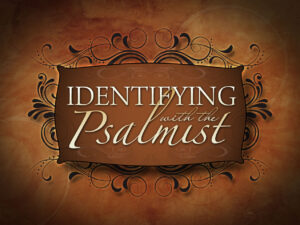The Soul of the Psalmist
We do not always know the circumstances in which the psalmist found himself when he took his pen in hand. However, as we can read his psalms, we often find that we have experienced similar circumstances in our lives, which have brought about the same feelings he had. Consider Psalm 43 where David asks, “Why are you cast down, O my soul?”
The psalm begins with the man of God surrounded by evil. His enemies and their actions are described as being deceitful and unjust. His reaction was to walk about mourning because of their oppression. How do you deal with life when there seems to be “no light at the end of the tunnel” and then your heart reaches out to heaven asking God to vindicate you against those who trouble you? David cried out, “Vindicate me, O God, and plead my cause” (v. 1).
How do you deal with such situations? How did the psalmist deal with them? While you may feel that God has cast you off (v. 2), you still know that God is the God of your strength and the reality is that He has not actually cast you aside. Notice the psalmist’s prayer as He deals with this matter: “Oh, send our Your light and Your truth! Let them lead me; let them bring me to your holy hill and to your tabernacle” (v. 3). He knew his help was found in His temple.
When he entered the presence of God and His altar, he could cast aside the mourning. God changed that into “exceeding joy” and David began praising God. Sometimes our life can be just like David. We grope about mourning our situation and choose to not even go to worship. It is as though we think we must handle trials all by ourselves, yet when we go to the place where His light shines and His truth is found, our mourning is changed into joy. It is remarkable that we can be so overwhelmed that we pull back from God.
When David came into God’s house, he knew God had not forsaken him, and he said, “I will praise You, O God, my God” (v. 4). It was then that David was reminded that he belonged to God and God truly was my God. He is personally concerned about all of His children, personally!
Notice how this brief psalm ends. He looked again at how his soul had been cast down, and said, “Why are you disquieted within me” (v. 5)? He then gives the answer. “Hope in God.” God had not forsaken him and left him all alone to deal with life’s trials. God was “…the help of my countenance and my God.” It was in His presence, in His tabernacle, that God said he would find help and praise Him again.
When trials come, never withdraw from coming to worship Him in His presence in His temple. His truth and light change how we view trials!
